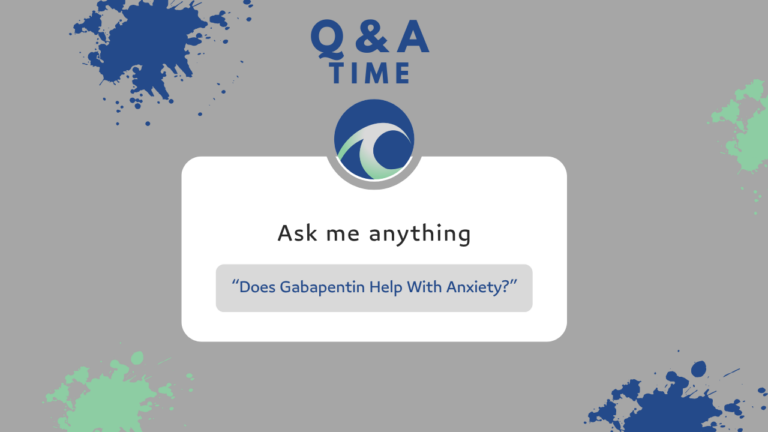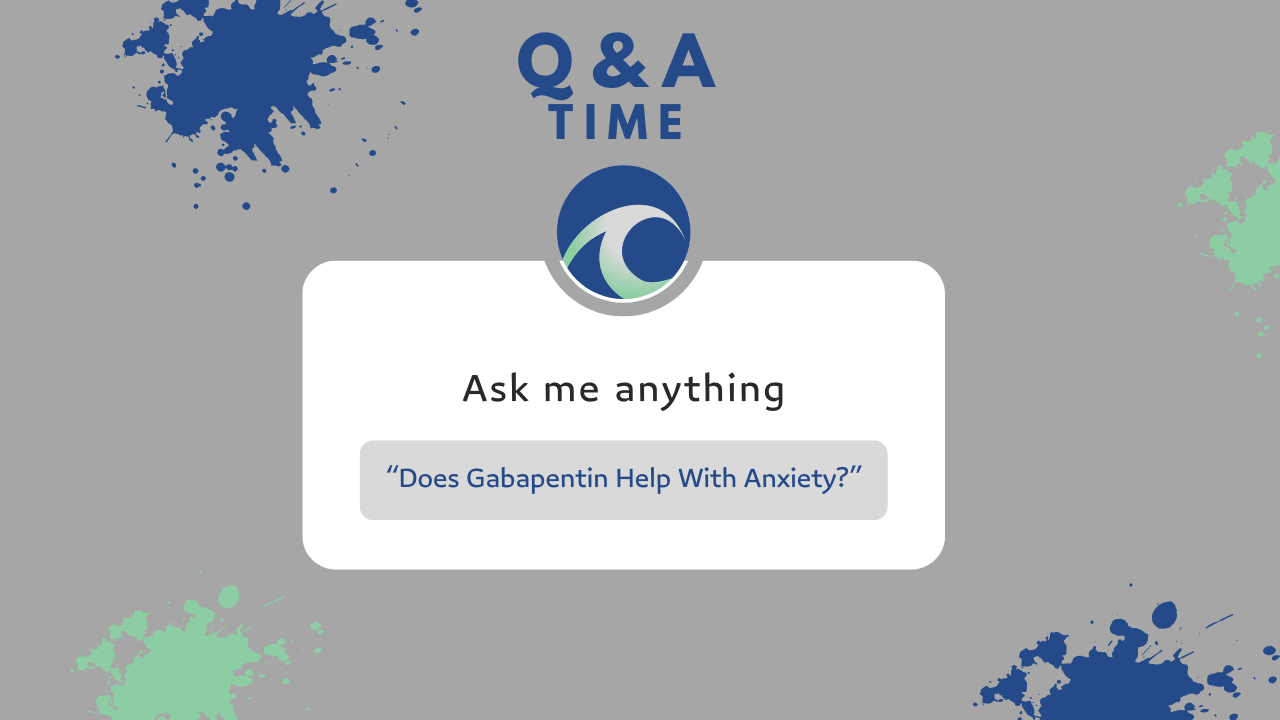
Does Gabapentin Help With Anxiety? The Truth About Gabapentin’s Effectiveness for Anxiety Treatment
Gabapentin is a medication commonly used to treat seizures, nerve pain, and restless leg syndrome. However, recent studies have shown that gabapentin may also be effective in treating anxiety disorders. Anxiety disorders are a common mental health condition that affects millions of people worldwide. Symptoms of anxiety can range from mild to severe and can interfere with daily activities.
Gabapentin works by affecting the levels of certain neurotransmitters in the brain, such as gamma-aminobutyric acid (GABA). GABA is a neurotransmitter that helps to regulate anxiety and stress. By increasing the levels of GABA in the brain, gabapentin may help to reduce anxiety symptoms. While gabapentin is not approved by the FDA for the treatment of anxiety, many doctors prescribe it off-label for this purpose.
Understanding Gabapentin
Pharmacology of Gabapentin
Gabapentin is a medication that belongs to the class of drugs known as anticonvulsants. It was originally developed to treat epilepsy, but it has since been found to be effective in treating other conditions, such as neuropathic pain and anxiety. Gabapentin is believed to work by affecting the neurotransmitters in the brain that are involved in the transmission of pain signals and the regulation of mood.
Gabapentin is structurally similar to the neurotransmitter gamma-aminobutyric acid (GABA), which is known to have a calming effect on the brain. However, gabapentin does not act directly on the GABA receptors in the brain. Instead, it is thought to bind to a specific type of calcium channel in the brain that is involved in the release of neurotransmitters.
Approved Uses of Gabapentin
Gabapentin is approved by the U.S. Food and Drug Administration (FDA) for the treatment of epilepsy and postherpetic neuralgia, a type of nerve pain that can occur after an outbreak of shingles. However, it is also commonly prescribed off-label for other conditions, such as anxiety, bipolar disorder, and migraines.
When used for anxiety, gabapentin is typically prescribed in lower doses than when it is used for epilepsy or neuropathic pain. It is thought to be effective in treating anxiety because it can help to calm the overactive neurons in the brain that are responsible for the symptoms of anxiety.
In conclusion, while gabapentin is primarily used to treat epilepsy and neuropathic pain, it has also been found to be effective in treating anxiety and other conditions. Its pharmacology involves binding to calcium channels in the brain, which affects the release of neurotransmitters and can help to calm overactive neurons.
Gabapentin and Anxiety
Clinical Studies on Gabapentin for Anxiety
Several clinical studies have investigated the effectiveness of gabapentin in treating anxiety disorders. A randomized, double-blind, placebo-controlled trial found that gabapentin significantly reduced symptoms of social anxiety disorder in patients compared to placebo. Another study found that gabapentin reduced anxiety symptoms in patients with generalized anxiety disorder.
However, it should be noted that not all studies have found gabapentin to be effective in treating anxiety. A small study found no significant difference between gabapentin and placebo in reducing symptoms of post-traumatic stress disorder.
Mechanism of Action in Anxiety Relief
The exact mechanism by which gabapentin reduces anxiety is not fully understood, but it is believed to involve the modulation of GABA neurotransmission. GABA is an inhibitory neurotransmitter that is involved in reducing anxiety and promoting relaxation.
Gabapentin is thought to increase the activity of GABA in the brain by binding to a specific subunit of voltage-gated calcium channels. This leads to a decrease in the release of excitatory neurotransmitters, such as glutamate, and an increase in the release of inhibitory neurotransmitters, such as GABA.
Overall, while some studies have shown that gabapentin can be effective in reducing symptoms of anxiety, further research is needed to fully understand its mechanism of action and its potential as a treatment for anxiety disorders.
Usage and Dosage
Recommended Dosage for Anxiety
Gabapentin is not approved by the FDA for the treatment of anxiety disorders. However, it is sometimes prescribed off-label for this purpose. The recommended dosage of gabapentin for anxiety varies depending on the individual patient and the severity of their symptoms.
Typically, the starting dose of gabapentin for anxiety is between 300-600 mg per day, divided into three doses. This dosage may be increased gradually over several weeks, up to a maximum dose of 3600 mg per day. However, it is important to note that higher doses of gabapentin may increase the risk of side effects.
It is important to work closely with a healthcare provider when taking gabapentin for anxiety. They can monitor the patient’s symptoms and adjust the dosage as needed to ensure the best possible outcome.
Administration Guidelines
Gabapentin can be taken with or without food, but it is recommended to take it with food to reduce the risk of stomach upset. The medication should be taken at the same time(s) each day to maintain a consistent level of the drug in the body.
Gabapentin should be taken exactly as prescribed by a healthcare provider. It is important not to suddenly stop taking gabapentin without consulting with a healthcare provider, as this can cause withdrawal symptoms.
If a dose is missed, it should be taken as soon as possible. However, if it is almost time for the next dose, the missed dose should be skipped and the regular dosing schedule should be resumed. It is important not to double the dose to make up for a missed dose.
In conclusion, gabapentin may be prescribed off-label for the treatment of anxiety disorders. The recommended dosage varies depending on the individual patient and their symptoms. It is important to work closely with a healthcare provider when taking gabapentin for anxiety to ensure the best possible outcome.
Side Effects and Precautions
Common Side Effects
Gabapentin is generally well-tolerated, but like any medication, it may cause side effects. The most common side effects of gabapentin include dizziness, drowsiness, and fatigue. These side effects are usually mild and go away on their own as the body adjusts to the medication.
Other common side effects of gabapentin may include:
- Nausea and vomiting
- Dry mouth
- Headache
- Diarrhea
- Constipation
- Blurred vision
- Swelling in the hands or feet
If any of these side effects become severe or persist, it is important to notify a healthcare provider.
Potential Risks and Interactions
Gabapentin may also pose some risks and interactions with other medications. It is important to inform a healthcare provider of all medications being taken, including over-the-counter medications and supplements.
Gabapentin may interact with the following medications:
- Antacids
- Morphine
- Hydrocodone
- Naproxen
- Cimetidine
- Alcohol
Additionally, gabapentin may increase the risk of suicidal thoughts or behavior. It is important to monitor for any changes in mood or behavior while taking gabapentin.
Gabapentin should not be stopped abruptly, as this may cause withdrawal symptoms. It is important to follow a healthcare provider’s instructions when discontinuing the medication.
In summary, while gabapentin is generally well-tolerated, it may cause some side effects and interact with other medications. It is important to inform a healthcare provider of all medications being taken and to monitor for any changes in mood or behavior while taking gabapentin.
At Waterside Recovery Centers we pride ourselves on providing the top addiction treatment in Massachusetts. With a range of evidence-based, client-focused and individualized treatment offerings, we are able to provide the ideal support for those seeking recovery from substance addiction. Please feel free to reach out to our help line at anytime.
(866)671-8620





